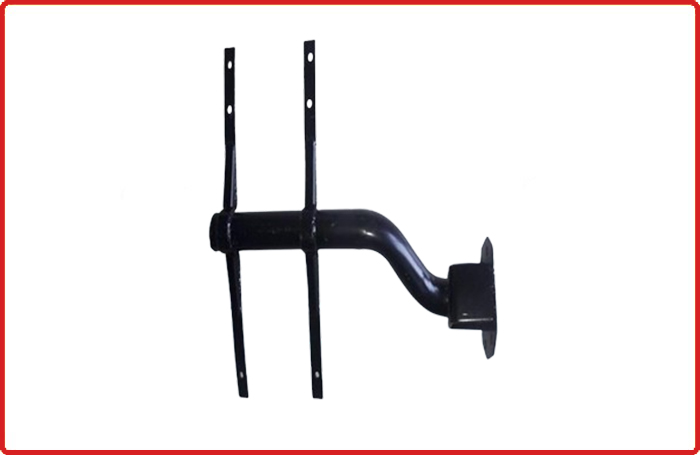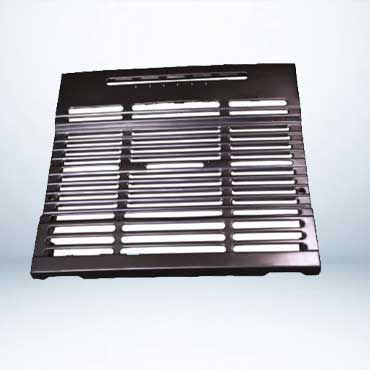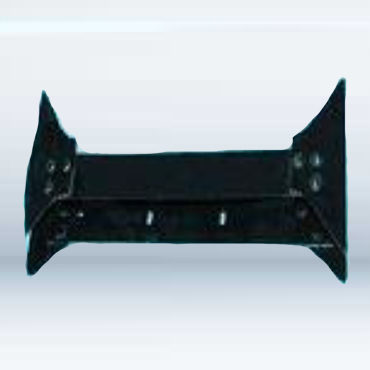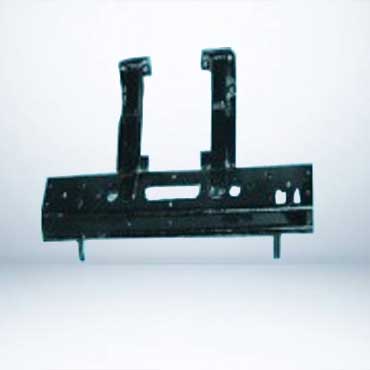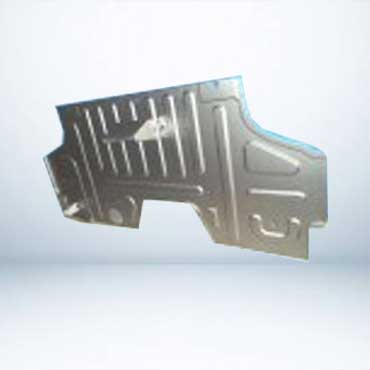In the automotive industry, metal stampings are used to create components such as body panels, brackets, and structural parts. With the increasing demand for lightweight and fuel-efficient vehicles, metal stampings provide the necessary strength while reducing weight. They also contribute to the overall safety and structural integrity of automobiles.
Metal stampings have revolutionized modern manufacturing processes by enabling mass production, reducing costs, and improving efficiency. The ability to create complex shapes and sizes with high precision and consistency makes metal stampings a preferred choice for many industries.
Devchhaya Group of Industries holds a strong market position in the metal stampings industry, catering to both domestic and international markets. With years of experience and expertise, we have built a reputation for delivering high-quality metal stampings that meet the specific requirements of our clients.
We understand the unique needs of each industry and provide tailored solutions to ensure customer satisfaction. Our commitment to continuous improvement and adherence to international quality standards have earned us recognition in both domestic and international markets.
At Devchhaya Group of Industries , we take pride in our ability to provide comprehensive manufacturing, supply, and export services for metal stampings. With our state-of-the-art facilities, skilled workforce, and dedication to excellence, we strive to exceed customer expectations and contribute to the success of our clients.
Overview of Metal Stamping Techniques
Metal stamping in India encompasses various techniques that are used to convert flat metal sheets into specific shapes. These techniques include:
- Blanking: The process of cutting larger sheets or coils of metal into smaller, more manageable pieces. Blanking is often performed when a stamped metal piece will be further formed or drawn.
- Punching: Involves creating holes or cutouts in the metal sheet using a punch and die set. This technique is commonly used to create openings for fasteners or to remove excess material.
- Bending: Utilizes a punch and die set to deform the metal sheet, creating bends or angles. Bending is crucial for achieving the desired shape and functionality of the stamped component.
- Deep Drawing: Involves stretching a metal sheet over a die to form a three-dimensional shape. This technique is commonly used to create cylindrical or box-like components.
- Forming: Refers to the process of shaping the metal sheet without removing any material. It includes techniques such as embossing, coining, and flanging.
Each metal stamping technique has its own advantages and applications, allowing for the production of a wide range of components with varying complexities and sizes
Materials Used in Stamping
We are the Metal Stamping Manufacturers. Suppliers, Exporters from India. Metal stamping can be applied to various materials based on their unique metalworking qualities. Commonly used materials include:
- Steel: Known for its strength and durability, steel is widely used in automotive, construction, and industrial applications.
- Aluminum: Lightweight and corrosion-resistant, aluminum is commonly used in the aerospace, automotive, and electronics industries.
- Copper: Known for its excellent electrical conductivity, copper is often used in electrical and electronic components.
- Brass: A combination of copper and zinc, brass is valued for its aesthetic appeal and is commonly used in decorative applications.
The choice of material depends on factors such as the desired properties of the component, cost considerations, and specific industry requirements
Quality Control Measures
Devchhaya Group of Industries prioritizes quality control measures to ensure the production of reliable and defect-free metal stampings. Some of the key measures include:
- Standards and Certifications: Devchhaya Group of Industries adheres to industry standards and certifications to ensure compliance with quality requirements. These standards may include ISO 9001 for quality management systems and specific industry certifications.
- In-Process Quality Checks: Regular inspections and quality checks are conducted during the stamping process to identify any deviations or defects. This allows for immediate corrective actions to maintain product quality.
- Final Inspection and Testing: Before the metal stampings are shipped to customers, a final inspection and testing process is conducted to ensure that the components meet the required specifications and quality standards.
Benefits of Choosing Devchhaya Group of Industries as a Supplier or Exporter
Choosing Devchhaya Group of Industries as a supplier or exporter of metal stampings offers several benefits. These include:
- Experience and Expertise: With over three decades of experience since their inception in 1990, Devchhaya Group of Industries has gained valuable expertise in the field of metal stampings Their long-standing presence in the industry indicates their ability to deliver quality products and services.
- Multi-Location Manufacturing Facilities: Devchhaya Group of Industries has manufacturing facilities in different regions of India, allowing them to provide services to OEMs close to their locations . This proximity can result in faster turnaround times and reduced logistical challenges for their clients.
- Quality Assurance: Devchhaya Group of Industries has acquired certifications such as TS16949, demonstrating their commitment to maintaining high-quality standards in their manufacturing processes. This commitment to quality ensures that clients receive reliable and durable metal stampings.
- Recognition in Domestic and International Markets: Devchhaya Group of Industries has gained recognition in both domestic and international markets. They have established relationships with renowned companies such as Tata Motors, Piaggio Vehicles, and Tata Johnson Control, which further validates their reputation and reliability
Advantages of Metal Stamping
Metal stamping offers numerous advantages that make it a preferred choice for manufacturers worldwide:
- Cost-Effectiveness: Once the die is created, metal stamping can produce large volumes of components at a lower cost per unit. This is particularly beneficial for mass production.
- Precision and Consistency: The process is highly automated, ensuring that each part is made with precision. This results in consistent quality and reduced variability in production.
- Versatility: Metal stamping can be used to create a wide range of components, from simple shapes to complex designs. This versatility allows manufacturers to meet various market needs.
- Material Efficiency: The stamping process minimizes waste through efficient material use, making it an environmentally friendly manufacturing option.
- Speed: Metal stamping is a fast process, allowing manufacturers to produce high volumes of parts in a short time frame, which is crucial for meeting tight deadlines.
Specifications of Metal Stamping Products
Metal stamping products can vary significantly based on the application, but common specifications include:
- Material Types: Steel (stainless, carbon, galvanized), aluminum, brass, copper, and specialized alloys.
- Thickness: Metal sheets typically range from 0.1 mm to 10 mm, depending on the application.
- Dimensions: Custom dimensions can be accommodated, but standard sizes often include lengths, widths, and heights that meet industry standards.
- Finishing Options: Products may receive various finishes such as powder coating, anodizing, plating, or painting, depending on the intended use and environmental exposure.
- Production Volume: Capabilities range from low-volume production for prototyping to high-volume runs for mass production.
Devchhaya Group of Industries stands out in this competitive landscape, offering high-quality, precision-engineered metal stamping solutions.
Whether you are looking for metal stampings for automotive industry, Devchhaya Group of Industries is your trusted partner. Contact us today to discuss your requirements and experience the quality and reliability that sets us apart.

